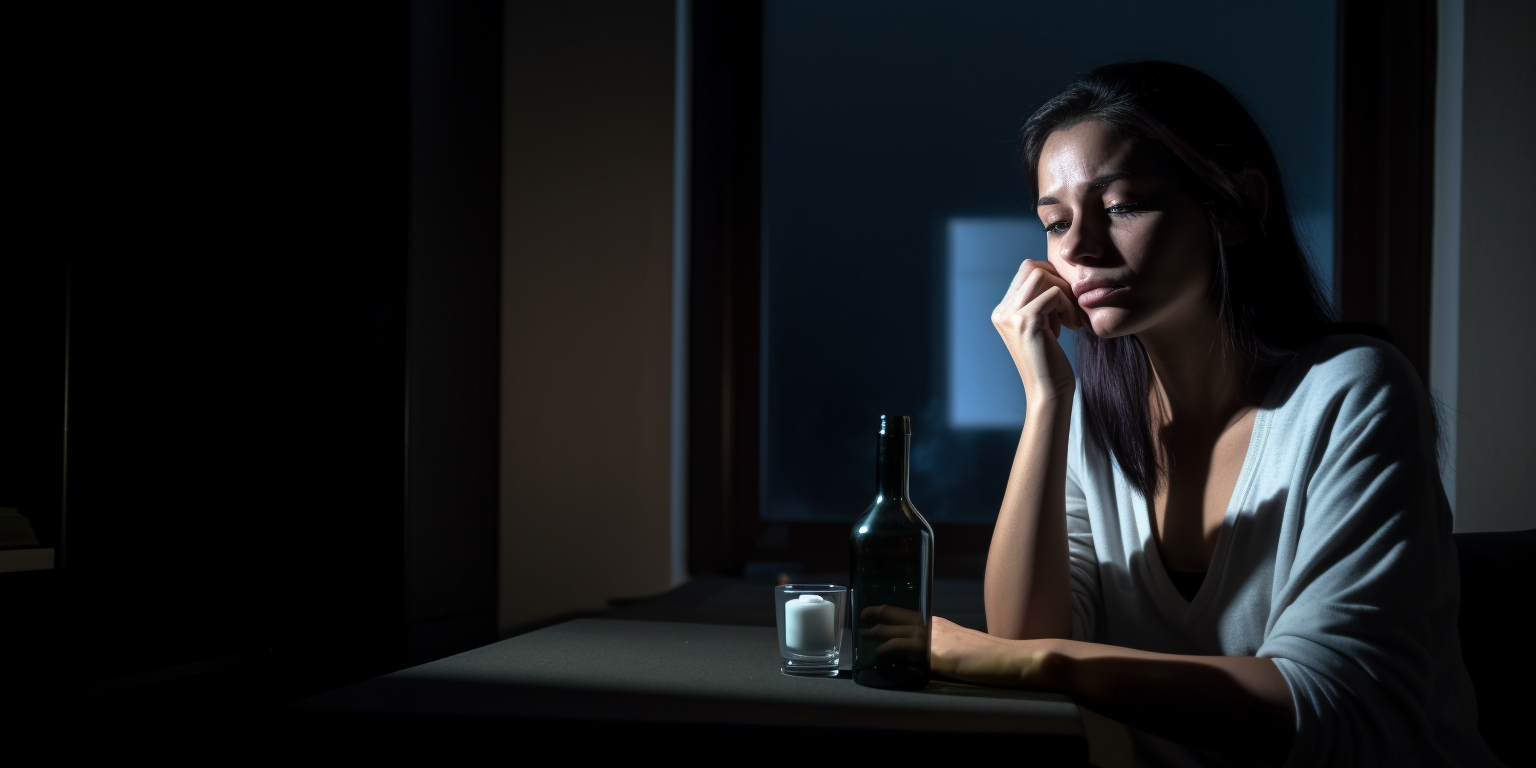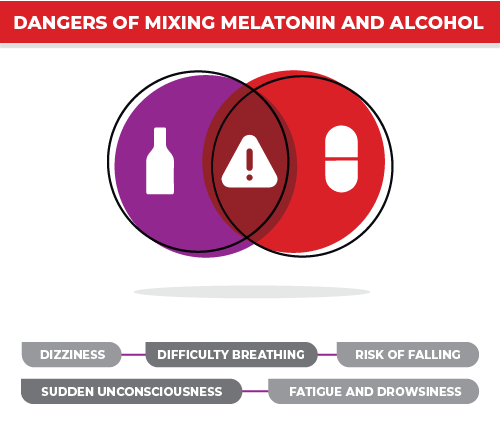Updated: August 3, 2023, at 9:32 a.m.
While melatonin is often seen as a harmless sleep aid, mixing it with alcohol can have unpredictable effects on your body and health. If you’ve ever struggled to sleep or spent long nights tossing and turning, you might have already tried it. A friend or family member might have suggested it to you at some point if not. “Have you tried melatonin? It makes you super sleepy, and it’s not even a drug!”
If you’re curious about the dangers of mixing substances, read our blog post “Can I Mix Melatonin and Marijuana?” for valuable insights. For immediate, confidential support, call Landmark Recovery at 888-448-0302. Our team is available 24/7 to assist you.
What is Melatonin?
Melatonin is a natural hormonal sleep aid that has been steadily rising in popularity over the last thirty years. While it doesn’t directly cause sleep, per se, our body’s melatonin levels naturally increase in the evenings, triggering your circadian response and encouraging your mind and body to sleep.
Sometimes, we experience disruptions in our sleep cycles. This can be caused by things like jet lag, insomnia, or forcing ourselves to be awake for school or work. In these cases, we can supplement with melatonin to balance out our levels in the short-term, but it’s not for everyday long-term use.
Melatonin supplements help to regulate sleep cycles, increasing our melatonin artificially to encourage rest. They can be used until the body readjusts to the new sleep schedule or when it resumes producing enough melatonin on its own.
Mixing Melatonin with Alcohol
Our bodies produce melatonin naturally, which may explain why so many people feel comfortable using it. Unlike sleeping pills, melatonin is deemed to be ‘safe’ and ‘natural.’ If our body already produces it, how could it be bad?
However, like any substance taken for medical reasons, it’s important to understand how to use melatonin safely and effectively.
Simply put, it is unsafe to mix melatonin supplements with alcohol. Even though melatonin is naturally produced in your body, alcohol can either weaken or strengthen the potency of melatonin supplements, causing further impairment.
When taken with alcohol, melatonin supplements can cause side effects that include:
- Increased heart rate
- Redness in the face
- Swelling of hands or feet
- Increased anxiety and/or irritability
- Vivid dreams
- Poor sleep quality
- Confusion or inability to think properly
Potential Dangers of Mixing Melatonin with Alcohol
Beyond the possibility of uncomfortable or disorienting side effects, mixing alcohol and melatonin can have more serious consequences. Keep in mind that you should consult a healthcare professional for advice tailored to your specific needs and circumstances.
Dangerous Symptoms
- Increased drowsiness: Both melatonin and alcohol have sedative effects, which can cause drowsiness. When taken together, these substances may amplify each other’s effects, potentially leading to excessive drowsiness, impaired coordination, and an increased risk of accidents or falls.
- Sleep disturbances: While melatonin is often used to promote sleep, alcohol can disrupt sleep patterns, resulting in poor sleep quality. Combining the two could lead to a counterproductive outcome, as the negative effects of alcohol on sleep might outweigh any potential benefits from melatonin.
- Interactions with medications: Both melatonin and alcohol can interact with various medications, and combining them might increase the risk of harmful interactions. This is particularly important if you are taking medications for sleep disorders, anxiety, depression, or other related conditions.
- Liver stress: Your liver is responsible for processing both alcohol and melatonin. Consuming alcohol and melatonin at the same time may place additional stress on your liver, potentially exacerbating any pre-existing liver conditions or increasing the risk of liver damage.
- Impaired judgment and cognitive function: Alcohol can impair your judgment, decision-making, and cognitive function. Combining it with melatonin may further exacerbate these effects, potentially increasing the risk of accidents, poor decision-making, and other negative consequences.
- Unknown long-term effects: There is limited research on the long-term effects of combining melatonin and alcohol. It is generally advisable to avoid combining substances with unknown interactions or long-term effects on health.
Consult a Professional
Always consult a healthcare professional before using any new medication or supplement, especially if you have pre-existing health conditions or are taking other medications. It is generally best to avoid mixing alcohol with other substances, particularly those that have sedative effects.
If you pass out suddenly, you can be in extreme danger, especially if you are walking somewhere potentially hazardous, like on a sidewalk close to traffic or operating a motor vehicle. Accidents, falls, and collisions can lead to severe injury or even death, depending on the circumstance.
How Much Melatonin Is Too Much?
Melatonin, when used appropriately, is best taken in small doses. The suggested dose is approximately one to three milligrams an hour or two before you go to bed. However, many factors might make it ineffective. For example, if you are taking other types of drugs, drinking, or under a great deal of stress, the melatonin might not work. If that is the case, do not double the dose! If it doesn’t work at the recommended dose, taking more isn’t going to help. Doctors recommend that you not use it for extended periods. Even if the supplement is effective, your course of treatment should not continue past one or two months.
Learn More
If you must take melatonin after consuming alcohol, wait for at least two to three hours before taking it to avoid alcohol seizures. Know the potential risks, and don’t be afraid to consult with your doctor or pharmacist to understand them better. If you or a loved one struggles with substance use or alcohol disorder, we can help. Reach out today to learn how to get started.
Choose recovery over addiction! Call Landmark Recovery at 888-448-0302 today, and let us help you reclaim your life with personalized, evidence-based treatment plans, including Medication-Assisted Treatment.

Choose Recovery Over Addiction
We're here 24/7 to help you get the care you need to live life on your terms, without drugs or alcohol. Talk to our recovery specialists today and learn about our integrated treatment programs.





